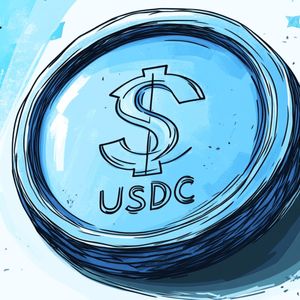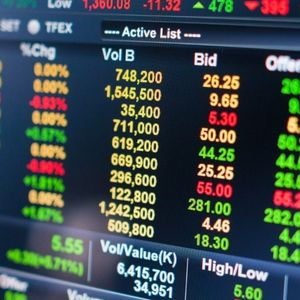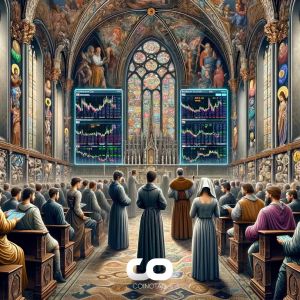Summary U.S. regulators have approved new Ethereum ETFs for trading. Ethereum is a type of cryptocurrency, similar to bitcoin. MoneyTalk's Greg Bonnell discusses with Andres Rincon from TD Securities. U.S. financial regulators have approved new Ethereum exchange traded funds, making them available for trade for the first time in U.S. markets. Andres Rincon, Head of ETF Sales and Strategy at TD Securities, discusses the implications with MoneyTalk’s Greg Bonnell. Transcript Greg Bonnell - US Securities and Exchange Commission has approved the availability of several spot Ethereum ETFs for trading on American markets. Joining us now to discuss is Andres Rincon, head of ETF Sales and Strategy at TD Securities. Andres, always great to chat with you about these developments. Andres Rincon - Thanks for having me. It seems like deja vu all over again. I was here not too long ago talking about Bitcoin, and now we're talking about ether. Greg Bonnell - Yeah, we did a while back, a few months, but now that we're here, we are talking about Ethereum. These developments, walk us through what they mean. Andres Rincon - Yeah, so regulators, or the SEC in the US, basically gave a heads up to the issuers in the US and said to file what we call an S-1 filing, which is really a prelude to these issuers launching these ETFs. So this was last week, and now, today, they've launched several ETFs in the US that cover ether. And really what they do is they give exposure to spot ether in the US. Historically, what we had only in the US was exposure to futures-based ether ETFs, and now we have spot ether ETFs in the US. Greg Bonnell - So that's a nice understanding of these products. Talk about the type of products that we're going to see out there. What are investors expecting? Andres Rincon - Yeah, so we expect between 5 and 10 over the next few weeks. I know a lot of them were launched today, but we expect many, many more over the next few weeks. What we're going to see is your traditional vanilla spot ether ETF. So it's similar to spot Bitcoin ETFs. What you have is an investor can now give some money to an ETF. They'll buy the ETF. That cash then goes and is purchased by the issuer. They go then on an exchange, and they purchase spot ether, and then they actually put it in cold storage. So they're put in cold storage for custody purposes in the same way that you would do if you open an account on an exchange and had your own cold storage, let's say. So you're going to see an array of products from your traditional issuers in the US, like the BlackRocks and the Fidelitys. They're the ones that have grown quite a bit in the US. And also, not too long from now, we'll also likely see the Grayscale ether fund convert into an ETF, which already has $9 billion in assets under management. So this industry, or this space, is going to grow quite quickly. We expect it to be around 1/4 of the crypto ETF market in the same way that it is in Canada that we're seeing here, the ratio. So, slowly, we'll see some growth there. In terms of fees, we're going to see-- call it, on the low end, about 0.15 of a percent in terms of management fee to the average likely to be at 0.22 of a percent. But many of them very likely will also cut their fees for a year and waive them for a year in the same way that we saw that for Bitcoin ETFs in the US. Greg Bonnell - Great primer there on the products and what they're going to look like for investors. At the same time, we need to speak about risks. What are the risks around a product like this? Andres Rincon - Very similar to Bitcoin ETFs. So what you see, really number one, is custodial risk. At the end of the day-- I mentioned cold storage. That cold storage is professionally managed and is regulated in the US. But at the end of the day, there's always the risk that it is manipulated or it is not taken care of properly and that those ether coins can be lost, let's say. That's one of the big risks in this space. Obviously very, very well guarded, but it's an important risk to mention. And the other one is price risk, obviously. Greg Bonnell - Markets go up, markets go down. Andres Rincon - Exactly. Greg Bonnell - No different. Andres Rincon - And ether-- ether tends to be volatile to some degree. So it's important to understand the risks and the volatility of ether, or Ethereum, when you're investing in those products. Greg Bonnell - So this is what's happening in the United States. What about the Canadian market? What does it look like when it comes to Ethereum ETFs? Andres Rincon - So it's important to remember that Canada had the first ether ETFs ever in the world, just for starters. We've had them since 2021. And so we now have a fairly broad lineup of ether ETFs. We have 12 ether ETFs. And this is ether ETFs. There's also ether-staking ETFs, which is slightly different. But we have 12 ether ETFs here in Canada from four different issuers, $1.3 billion. And as I said earlier, it's about 1/4 or so, just shy of that, of the crypto ETF landscape here in Canada. So it's a very vibrant market in Canada. It trades quite well. And we have a lot of investors looking for exposure to ether ETFs here in Canada through Canadian ETFs already. Original Post
















